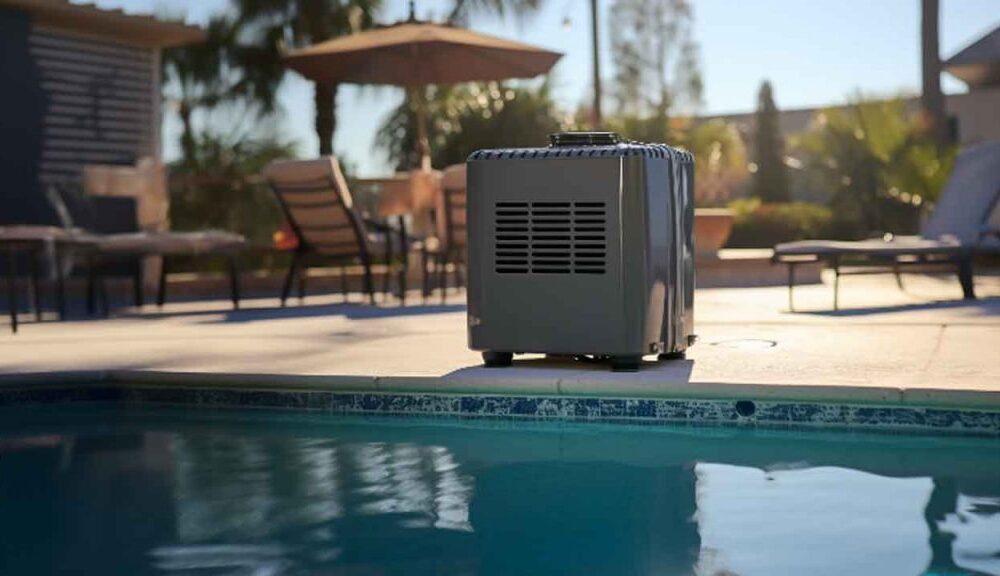When Should I Consider Replacing My Pool Heater?

A pool heater is an essential component for extending the swimming season and maintaining comfortable water temperatures. However, like any piece of equipment, it doesn’t last forever. Knowing when to replace your pool heater can save you from unexpected breakdowns and costly repairs. Whether you’re exploring options for a new heater or browsing pool supply Canada for the latest upgrades, this guide will help you determine when it’s time for a replacement.
Signs Your Pool Heater May Need Replacing
1. Age of the Heater
Most pool heaters have a lifespan of 7 to 12 years, depending on usage, maintenance, and water quality. If your heater is nearing or has surpassed this range, it may be time to start planning for a replacement. Older units often lack the efficiency and features found in modern heaters, making an upgrade a worthwhile investment.
2. Rising Energy Bills
An inefficient pool heater can lead to noticeable increases in energy costs. Over time, wear and tear reduce the heater’s ability to function at peak efficiency, forcing it to work harder and consume more energy. Replacing your old unit with a modern, energy-efficient model can reduce energy consumption and save money in the long run.
3. Frequent Repairs
If you find yourself repeatedly repairing your pool heater, it may be more cost-effective to invest in a new one. Frequent breakdowns not only add up financially but can also cause interruptions in your pool usage. Consider replacement if the costs of repairs approach or exceed 50% of the cost of a new heater.
4. Uneven Heating or Poor Performance
A properly functioning pool heater should maintain consistent water temperatures. If you notice uneven heating, failure to reach the desired temperature, or extended heating times, it could indicate internal issues such as clogged burners, faulty sensors, or scale buildup. In some cases, these problems can be fixed, but if performance doesn’t improve, replacement may be necessary.
5. Visible Corrosion or Damage
Signs of corrosion, rust, or physical damage on the exterior or internal components of your pool heater are clear indicators of wear and aging. Corrosion can lead to leaks or even complete failure of the unit. If damage is extensive, replacing the heater is often the best solution to avoid further issues.
Factors to Consider When Replacing Your Pool Heater
Energy Efficiency
Modern pool heaters are designed with energy efficiency in mind. Look for models with high energy ratings, as these will heat your pool more effectively while keeping operational costs low. Solar-powered and heat pump pool heaters are excellent options for eco-conscious homeowners.
Size and Heating Capacity
Choosing the right size for your pool heater is critical to maintaining optimal performance. A heater that’s too small will struggle to heat the pool, while an oversized unit may waste energy. Consult with a pool professional to determine the appropriate size based on your pool’s volume, climate, and usage patterns.
Type of Heater
Pool heaters come in three main types:
- Gas Heaters: Provide rapid heating and are ideal for pools that are used sporadically.
- Electric Heat Pumps: More energy-efficient than gas heaters, these are best for moderate, consistent heating needs.
- Solar Heaters: Utilize renewable energy and have low operating costs, although they rely on consistent sunlight.
Each type has pros and cons, so it’s important to select one that aligns with your budget, energy preferences, and climate.
Compatibility and Installation
When upgrading your pool heater, ensure it’s compatible with your existing pool system, including plumbing and electrical connections. Professional installation is often recommended to guarantee proper setup and performance.
Maintenance Tips to Extend Your Heater’s Lifespan
To get the most out of your pool heater and delay the need for replacement, regular maintenance is essential. Clean or replace filters, remove debris from vents, and flush the heat exchanger to prevent scale buildup. Additionally, schedule annual inspections with a technician to catch potential issues early and keep the unit running smoothly.
Conclusion: Plan Ahead for Comfort and Efficiency
A well-functioning pool heater ensures that you can enjoy your pool for longer periods without worrying about water temperature fluctuations. If your heater is showing signs of age, inefficiency, or frequent breakdowns, it may be time to consider a replacement.
Upgrading to a modern, energy-efficient model from a trusted pool supply Canada provider can save money on energy bills, reduce repair costs, and provide better performance. Evaluating your current heater and planning for a replacement now can help you avoid disruptions during peak swimming season, ensuring your pool remains a source of relaxation and enjoyment.




